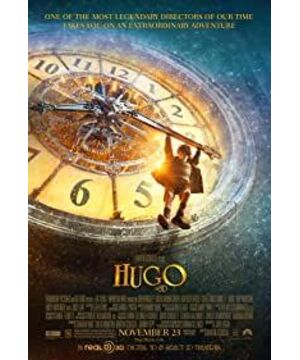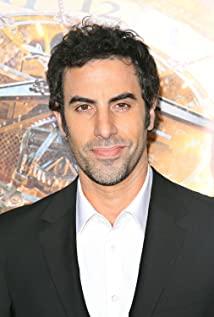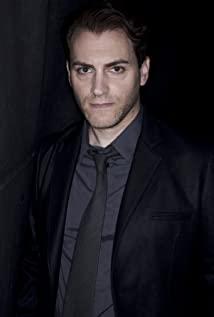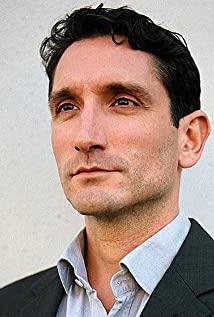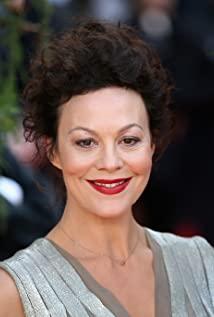"Hugo" is Martin Scorsese's first 3D movie.
It was a gift prepared by Martin Scorsese for early films and filmmakers (I guess), as the director of "Angry Bull", "Taxi Driver", "His Royal Highness (Dalai's Life)" and "New York Gangs" The legendary master of a series of classic movies of "The Age of Innocence" and "The Good Guy". In this film, Martin takes us through the events experienced by the little protagonist Hugo at the Montparnasse train station in France in 1930. It takes us back to the early film history. The magnificent 3D effects and the black and white silent film in the film are vividly formed. The contrast makes people sigh the changes in the film over the past 100 years.
Hugo is the son of a watchmaker. Hugo's father (played by Jude Law) died in a fire. He was orphaned by his alcoholic uncle and brought him to the Montparnasse train station in Paris. Set the time for the clock in the clock tower of. In order to repair a robot he brought, Hugo stole some tools and mechanical parts from a toy store in a train station. The toy store owner George grabbed him and confiscated one of his mechanical manuals. He followed George to his house and met George’s adopted daughter Isabella. He begged Isabella to help him ask his adoptive father to return his handbook. From a young age, Isabella longed for an adventure like the one in the novel, so she searched for the mechanical manual with Hugo. Later, the identity of his adoptive father George was discovered in a film history in the library. It turned out that his adoptive father was George Merrier, the founder of the early film. George was gradually forgotten after World War I, and no one likes to watch his movies. George, whose life was getting worse by the day, sold all his film films, burned down the props used for shooting, and no longer recalled the glory of the past. In order to help George retrieve their dreams, Hugo and Isabella went to George's house with the author of the film history in the library with the only existing film of George Merrier in his collection... …
Some of the scenes of the film are real, but the panoramic view of Paris in 1930 is 3D digital special effects, the scene is very magnificent. In Hugo's eyes, the world is like a huge machine, and all things in this world are like mechanical parts, and none of them are superfluous. The meaning of machinery is to do what it should do. Once the machinery is broken, it cannot operate, which is a devastating blow. For machinery, all Hugo has to do is repair it.
The story of the film is set in 1930, the age of steam and machinery.
There is a subtle relationship between people and machinery in the film, and dreams—lost—recover dreams. Mechanical operation-damaged-repaired and operated.
The mechanical age is not only the background of the generation of movies, but also a symbol of the movie itself, the kind of surprise that the movie itself experienced—depression—prosperity.
George Merrier in the film is like the robot where Hugo lives. After his dream is disillusioned, he does not want to recall those painful memories. At this time, he is a broken robot. With the efforts of Hugo, Isabella, and film historians, George Merrier was repaired, and he rediscovered his dream.
This movie gave me too many surprises and touches:
The film cleverly traces the whereabouts of the mechanical manual through Hugo, interspersed with many early classic movies, such as "Train Into the Stop", "Metropolis" and the first reportage taken after the camera was invented, "Montparnasse Train Accident" At the end of the movie, Hugo climbing on the big pointer outside the clock tower is very similar to Chaplin's "Modern Times" scene. This is Martin Scorsese's tribute to early movies and filmmakers in the way of movies. However, Martin Scorsese most respected George Merrier, not Lumiere, because the film also conveyed such a message through George Merrier’s words that the Lumiere brothers invented The camera, but he was unwilling to sell the camera to George Merrier, because he believed that the movie was just a fashionable toy, and he was not optimistic about the prospects of the movie. And the one who really made the movie shine is George Merrier. Georges Merrier shot many imaginative classics in the early conditions when the conditions were very backward. Martin Scorsese believes that film is not only a tool for objectively recording reality, but also a tool for expressing ideas and creating dreams. So from this point it is not difficult to understand why he admires George Merrier so much. Martin Scorsese believes that George Merrier gave the film a humanistic connotation. Martin Scorsese re-emphasized the essence of film under the high-tech conditions of the new era of film.
Since the film was produced, it has displayed in its unique way a height that cannot be achieved by paintings and words.
This movie is impeccable in terms of the picture, and it is perfect. I downloaded the high-definition version of 720P. After reading it, I felt that if it were in a movie theater, the visual impact would definitely be stronger.
In terms of the plot, there are some things that are very abrupt. For example, the short appearance of handsome man Jude Law, I think his appearance has affected the continuity of the whole plot, and it might be better to change to an unknown little actor. Hugo’s dream train derailment is exactly the same as the train accident that occurred later at the station and the real train accident that occurred at the Montparnasse train station in reality. It seems to imply the dilemma of early films and the worries about the future of films.
This movie is imperfect, just like the imperfection of reality and the imperfection of machinery. Martin Scorsese seems to be telling us that it is precisely because of imperfection that we create dreams, that is why we have dreams, and that is why we fix it.
Pay tribute to the great film and the same great filmmakers, and pay tribute to the film ideals that I have betrayed. I will manage my dreams and fix my dreams in the field of photography.
View more about Hugo reviews


